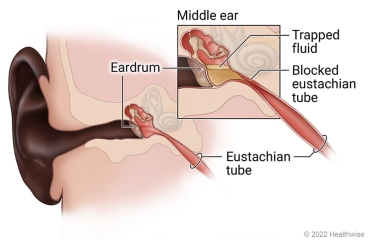Understanding ENT Care: When to See an Ear, Nose, and Throat Specialist

Ear, nose, and throat (ENT) issues are common across all age groups, ranging from mild irritations to serious medical conditions. Timely consultation with a specialist ensures proper diagnosis and effective treatment, improving overall health and quality of life. ENT Ear Nose Throat care covers a wide spectrum of conditions, from hearing loss and sinus infections to throat disorders and sleep-related problems.
Reliable information and professional guidance are available through ENT Ear Nose Throat, where patients can learn about various conditions, treatment options, and preventive measures. Seeking expert care early can prevent complications and help manage chronic conditions effectively.
Common Conditions Treated by ENT Specialists
ENT specialists are trained to manage disorders affecting the ears, nose, throat, and related structures of the head and neck. Some of the most common conditions include:
- Ear Disorders: This includes hearing loss, tinnitus (ringing in the ears), ear infections, and balance disorders. ENT specialists also manage wax buildup and injuries to the ear.
- Nasal and Sinus Issues: Chronic sinusitis, nasal polyps, deviated septum, and allergies often require ENT evaluation. Persistent nasal congestion, postnasal drip, or frequent nosebleeds are reasons to seek medical advice.
- Throat and Voice Problems: ENT doctors treat conditions such as tonsillitis, pharyngitis, laryngitis, and voice disorders. They also manage swallowing difficulties and snoring-related issues.
- Head and Neck Disorders: This includes tumors, cysts, or infections in the head and neck region. ENT specialists may also perform reconstructive and cosmetic procedures as part of comprehensive care.
Signs You Should See an ENT Specialist
Knowing when to consult an ENT professional is crucial for timely intervention. Some common warning signs include:
- Persistent ear pain, discharge, or hearing loss.
- Frequent or chronic sinus infections that do not respond to medication.
- Difficulty swallowing or chronic sore throat.
- Persistent hoarseness, voice changes, or snoring issues.
- Unexplained lumps or growths in the head and neck area.
- Allergic reactions causing prolonged nasal congestion or eye irritation.
Early evaluation helps prevent complications, including permanent hearing loss, chronic infections, or sleep apnea-related issues.
Diagnostic Approaches in ENT Care
ENT specialists use a combination of patient history, physical examinations, and advanced diagnostic tools to identify underlying conditions. Common diagnostic methods include:
- Otoscopy: Examining the ear canal and eardrum to detect infections, blockages, or structural issues.
- Endoscopy: A flexible camera is used to inspect the nasal passages, throat, and larynx.
- Imaging Tests: CT scans or MRI may be ordered to evaluate sinus problems, tumors, or structural abnormalities.
- Hearing and Balance Tests: Audiometry and vestibular assessments help diagnose hearing loss and balance disorders.
- Allergy Testing: Identifying specific allergens contributing to chronic nasal congestion or sinusitis.
Accurate diagnosis is the foundation for effective treatment and long-term management.
Treatment Options in ENT Care
ENT treatments vary depending on the condition and severity:
- Medical Treatments: Antibiotics, anti-inflammatory medications, antihistamines, and decongestants are commonly prescribed for infections and allergies.
- Surgical Interventions: Procedures such as tonsillectomy, sinus surgery, or ear tube placement may be necessary for chronic or severe cases.
- Therapeutic Approaches: Voice therapy, balance rehabilitation, and allergy immunotherapy are part of comprehensive ENT care.
- Preventive Measures: Lifestyle changes, proper ear care, and vaccination for flu and other infections help reduce the risk of recurrent ENT issues.
Choosing the Right ENT Specialist
Selecting a qualified ENT professional is critical for successful treatment. Consider the following:
- Credentials and experience in diagnosing and treating specific ENT conditions.
- Availability of advanced diagnostic tools and treatment facilities.
- Patient reviews and reputation in providing personalized and effective care.
- Clear communication and willingness to explain treatment options in detail.
Conclusion
ENT Ear Nose Throat specialists play a vital role in managing a wide range of conditions affecting critical areas of the body. Early recognition of symptoms, accurate diagnosis, and timely intervention ensure better outcomes and prevent complications. By consulting with an experienced ENT professional, patients can achieve improved health, better quality of life, and long-term relief from persistent or recurring ear, nose, and throat problems.





